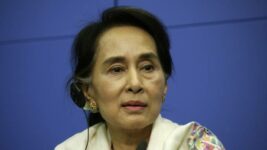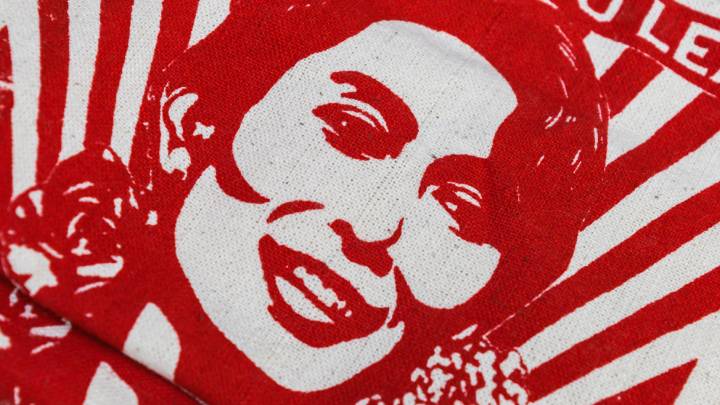Myanmar Leader Aung San Suu Kyi May Spend the Rest of Her Life in Prison

Former Myanmar state counsellor Aung San Suu Kyi will continue to spend more of her life under the imprisonment of the nation’s ruling military junta, after she was sentenced on Monday to four years prison time, which army chief Min Aung Hlaing subsequently reduced to two years inside.
Having been detained since the junta staged a successful coup in February this year, Aung San Suu Kyi was previously kept under house arrest by the military dictatorship for a total of 15 years over two periods between 1989 and 2010, due to her prominent role in the 1988 democracy uprising.
Leader of the National League of Democracy (NLD) Party, Aung San Suu Kyi was convicted of inciting dissent on 6 December. However, she still faces a long list of other yet-to-be-tried trumped-up charges, which could see the 76-year-old spend the rest of her life in gaol or under house arrest.
The junta retook control of the Southeast Asian country on 1 February, after it had continued to hold key ministerial positions within the civilian NLD government following a 2015 election that ended half a century of military rule.
The coup followed Aung San Suu Kyi’s party having won a second general election by a landslide in November last year.

Ongoing victory and defeat
Former NLD president Win Myint was sentenced to prison, alongside Aung San Suu Kyi, on Monday.
Following the pair having successfully taken out last year’s general election, the junta claimed widespread voter fraud, although a subsequent election commission inquiry found this wasn’t the case.
Since the military deposed the elected government, Myanmar has been in turmoil with fierce opposition to the restoration of military rule on the streets, which has seen security forces kill around 1,300 pro-democracy demonstrators, whilst thousands of others have been imprisoned.
As state counsellor, Aung San Suu Kyi was the de facto head of state, as she had been barred from taking the presidency, due to a strategically placed law in the nation’s military-drafted constitution, which forbids a person married to a foreigner – as she was – from becoming president.
The close to a dozen charges the democracy leader is now facing carry a combined maximum penalty of 100 years imprisonment.
Aung San Suu Kyi also won the nation’s 1990 general election, which was its first free election in 25 years. But, instead of handing over power, the military held onto it and placed the elected leader of the nation under house arrest.
Gathering support for Rohingyas
After having been a long-term beacon for democracy, Aung San Suu Kyi’s reputation became tarnished, as she stood silently by whilst the country’s military cracked down heavily on the Rohingya population in the nation’s northwest.
Known as the Tatmadaw, the Myanmar military commenced the crackdown in August 2017. This saw over 700,000 of the mostly Muslim Rohingyas, whom Myanmar continues to refuse to extend citizenship to, flee over the border into neighbouring Bangladesh.
Despite their ongoing persecution under it, the Rohingya population has been vocally calling for the restoration of the NLD civilian government. And this has since seen the grassroots democracy movement include pro-Rohingya messaging within their overall campaign.
This rising support for the Rohingya cause coming from the mainly Buddhist majority Myanmar population is in stark contrast to the racism and violence the stateless people have been subjected for decades.







